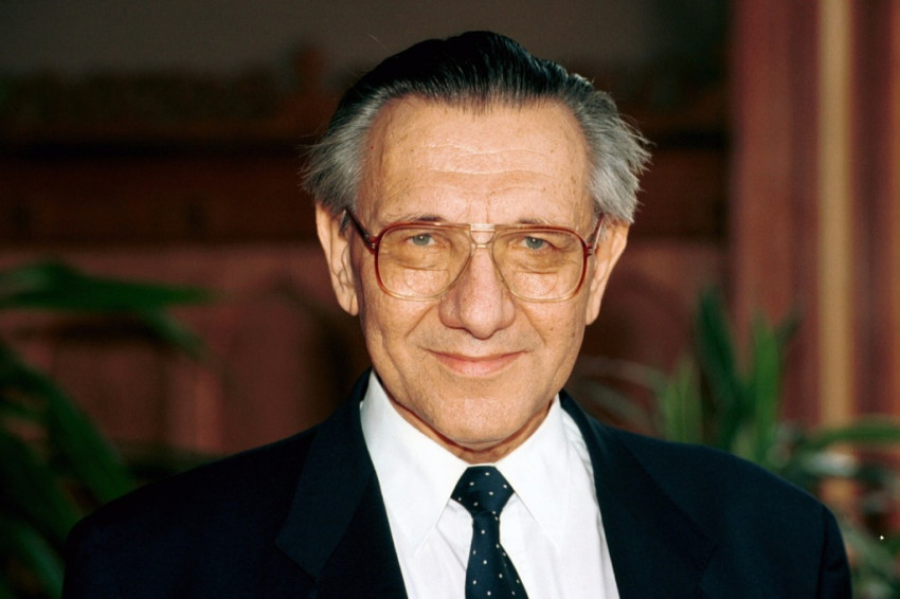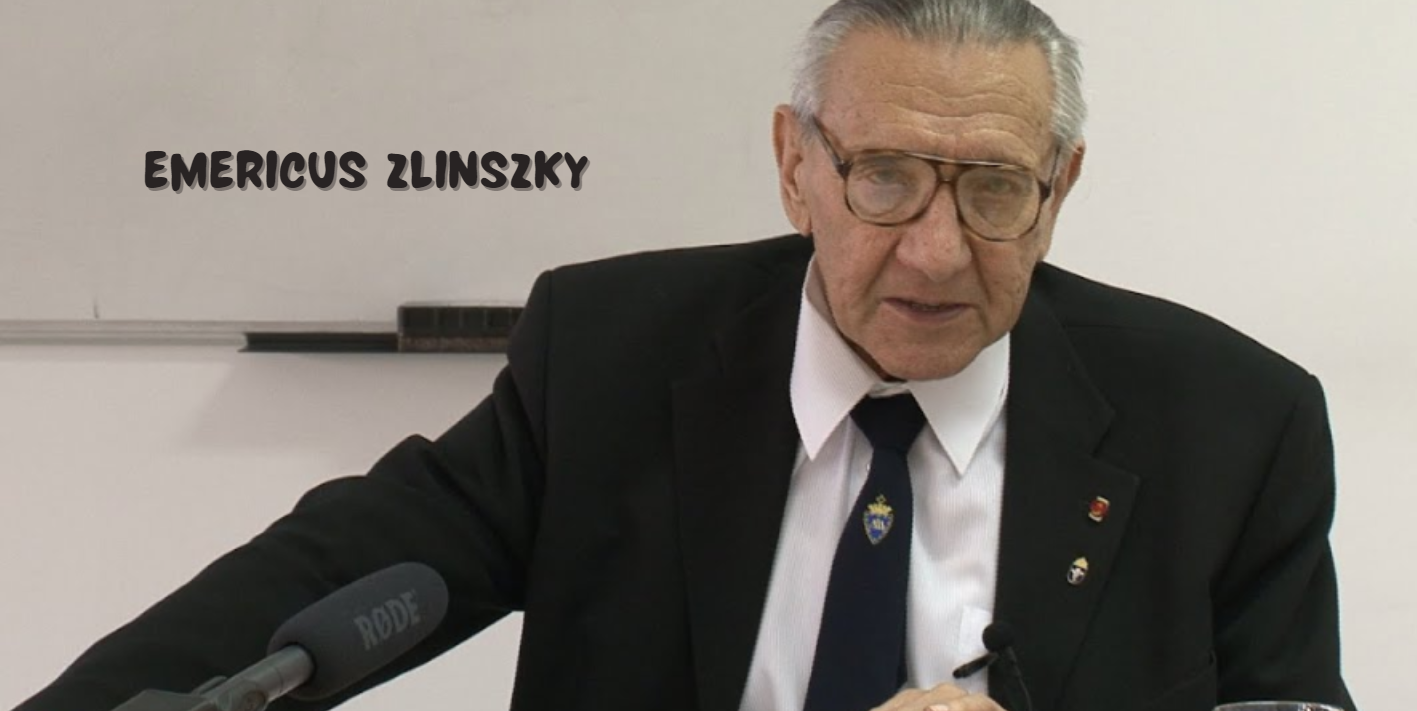Emericus Zlinszky: A Visionary in Environmental Science and Philosophy
Emericus Zlinszky may not be a household name in the United States, but his contributions to environmental science, philosophy, and education have had a profound influence on how we understand and interact with the natural world.
His interdisciplinary approach bridged the gap between science and ethics, and his work continues to inspire those interested in sustainable living, environmental stewardship, and the philosophical exploration of humanity’s place in nature.
In this comprehensive article, we delve into Zlinszky’s life, his major achievements, and the enduring impact of his work, offering insights and analyses that go beyond what’s readily available in existing sources.
Whether you are a student of environmental science, philosophy, or simply someone intrigued by thinkers who challenge conventional perspectives, this exploration of Emericus Zlinszky will provide you with a deeper understanding of his legacy.
Also Read: Uncuymaza: A Deep Dive into Craftsmanship, Culture, and Identity
Early Life and Education
The Roots of Environmental and Philosophical Thought
Emericus Zlinszky was born into a period of rapid industrialization and environmental degradation, a time when the consequences of human activity on the planet were becoming increasingly evident. While information about his early life is scarce, his passion for both science and philosophy likely developed during these formative years.
Growing up, Zlinszky would have been exposed to the environmental changes that were taking place across Europe and the globe. This era shaped his understanding of the need for a balanced relationship between humanity and nature—a theme that would later define his academic and professional career.
Academic Pursuits: A Blend of Science and Philosophy
Zlinszky pursued higher education with a keen interest in both the natural sciences and humanities. His interdisciplinary education set the foundation for his later work, allowing him to approach environmental issues from a perspective that included not only empirical research but also ethical considerations.
Unlike many of his contemporaries who focused exclusively on science or philosophy, Zlinszky understood the importance of integrating the two. His early academic work laid the groundwork for the unique way he would later tackle global environmental challenges.

Major Contributions to Environmental Science
Pioneering Remote Sensing Techniques
One of Zlinszky’s most notable contributions to environmental science was his pioneering work in remote sensing technologies. Remote sensing, which involves gathering information about the Earth’s surface from a distance (usually through satellites or aerial photography), became a critical tool in environmental monitoring during the late 20th century. Zlinszky saw the potential for this technology to revolutionize how scientists observed changes in ecosystems and human impact on natural environments.
Zlinszky’s work focused on applying these technologies to track deforestation, monitor water quality, and study biodiversity. His research helped develop techniques that are still used today in environmental science, particularly in areas such as habitat mapping, climate change studies, and conservation efforts.
Advancements in Hydrology and Water Management
Another significant area of Zlinszky’s work involved hydrology—the study of water in the environment. Water is a critical resource, and its management has always been a major concern for environmental scientists. Zlinszky made key advancements in understanding water ecosystems, particularly wetlands, and their role in maintaining environmental balance.
His research on wetlands was groundbreaking, as he was one of the first to advocate for their protection at a time when they were often seen as wastelands to be drained for agricultural or urban development. Zlinszky demonstrated the importance of wetlands in flood control, water filtration, and as critical habitats for various species. His work helped shape modern environmental policies aimed at wetland conservation.
The Global Environmental Perspective
Zlinszky’s work wasn’t confined to one region or one issue. His research took him around the globe, from the forests of Europe to the wetlands of Asia and the deserts of Africa. This global perspective allowed him to understand environmental issues in a holistic way, recognizing the interconnectedness of ecosystems and the importance of addressing environmental challenges on a global scale.
His research highlighted the need for international cooperation in solving environmental problems, long before the global community fully embraced the idea of international environmental treaties and agreements. In many ways, Zlinszky was ahead of his time, pushing for the kind of global environmental governance that would only become widespread decades later.
Also Read: Uncuymaza: A Deep Dive into Craftsmanship, Culture, and Identity
Philosophical Insights: Humanity’s Relationship with Nature
The Ethics of Environmental Stewardship
Beyond his scientific contributions, Emericus Zlinszky was also a profound thinker in the field of environmental ethics. He argued that humanity had an inherent responsibility to act as stewards of the Earth, not simply as consumers of its resources. His philosophical writings often centered around the idea that our moral obligation to future generations required a shift in how we interacted with the natural world.
This notion of stewardship was radical at the time. While many environmentalists focused on conservation for practical reasons—such as maintaining resources for human use—Zlinszky took a more ethical approach. He believed that protecting the environment was a moral duty, independent of human needs, because of the intrinsic value of nature.
Philosophical Anthropology: Humanity’s Place in the Ecosystem
Another significant aspect of Zlinszky’s philosophical work was his exploration of humanity’s place within the larger ecosystem. Drawing on philosophical anthropology, which examines human beings from both a biological and cultural perspective, Zlinszky argued that humans were not separate from nature but an integral part of it.
This view challenged the dominant narrative of the time, which often placed humanity above the natural world. Zlinszky’s work called for a rethinking of human exceptionalism, urging people to recognize their interconnectedness with all living organisms. He believed that this shift in perspective was essential for addressing environmental crises and creating a more sustainable future.
Legacy and Enduring Impact
Influence on Environmental Policy
Emericus Zlinszky’s work had a lasting impact on environmental policy, particularly in Europe. His research on remote sensing and water management directly influenced conservation policies, while his philosophical ideas helped shape the ethical framework for environmental laws.
Many of the principles Zlinszky advocated—such as the protection of wetlands and the moral duty to preserve ecosystems—have been incorporated into modern environmental regulations. His influence can be seen in international agreements like the Ramsar Convention on Wetlands and the European Union’s Water Framework Directive.
Educational Contributions
In addition to his research and philosophical writings, Zlinszky was also a dedicated educator. He believed strongly in the power of education to bring about change and spent much of his career teaching the next generation of environmental scientists and philosophers.
His interdisciplinary approach to teaching encouraged students to think critically about environmental issues from multiple perspectives. Zlinszky’s legacy lives on in the many students he mentored, who have gone on to make significant contributions to both environmental science and policy.
Also Read: Uncuymaza: A Deep Dive into Craftsmanship, Culture, and Identity
Conclusion: The Enduring Relevance of Emericus Zlinszky
Emericus Zlinszky’s contributions to environmental science and philosophy were groundbreaking in their time and remain relevant today. His pioneering work in remote sensing and hydrology helped lay the foundation for modern environmental monitoring and water management practices, while his philosophical insights continue to influence discussions on environmental ethics and sustainability.
Zlinszky’s legacy is one of innovation and vision. He saw the need for a holistic approach to environmental issues—one that combined scientific rigor with ethical responsibility. As the world continues to grapple with climate change, biodiversity loss, and water scarcity, Zlinszky’s work serves as a reminder of the importance of integrating science, philosophy, and global cooperation in the fight to protect our planet.
Also Read: Uncuymaza: A Deep Dive into Craftsmanship, Culture, and Identity
FAQs About Emericus Zlinszky
1. Who was Emericus Zlinszky?
Emericus Zlinszky was a pioneering environmental scientist and philosopher known for his contributions to remote sensing, water management, and environmental ethics. His interdisciplinary work combined scientific research with philosophical exploration, particularly focusing on humanity’s relationship with nature.
2. What were Zlinszky’s major contributions to environmental science?
Zlinszky made significant advancements in remote sensing technologies and hydrology, particularly in the study and conservation of wetlands. His research influenced modern environmental policies, including wetland conservation and water management practices.
3. How did Zlinszky’s philosophical views influence environmental ethics?
Zlinszky advocated for the ethical principle of environmental stewardship, arguing that humanity has a moral responsibility to protect nature. His work challenged traditional views of human dominance over the natural world and promoted the idea that all living organisms are interconnected.
4. What is Zlinszky’s legacy in education?
As an educator, Zlinszky mentored many students, encouraging an interdisciplinary approach to environmental science and philosophy. His teachings have had a lasting impact on the next generation of environmental scientists and policymakers.
5. How does Zlinszky’s work remain relevant today?
Zlinszky’s pioneering research and philosophical insights continue to influence environmental science, policy, and ethics. His work on remote sensing is still used in environmental monitoring, and his ideas about environmental stewardship are central to current discussions on sustainability and conservation.
Also Read: Uncuymaza: A Deep Dive into Craftsmanship, Culture, and Identity






